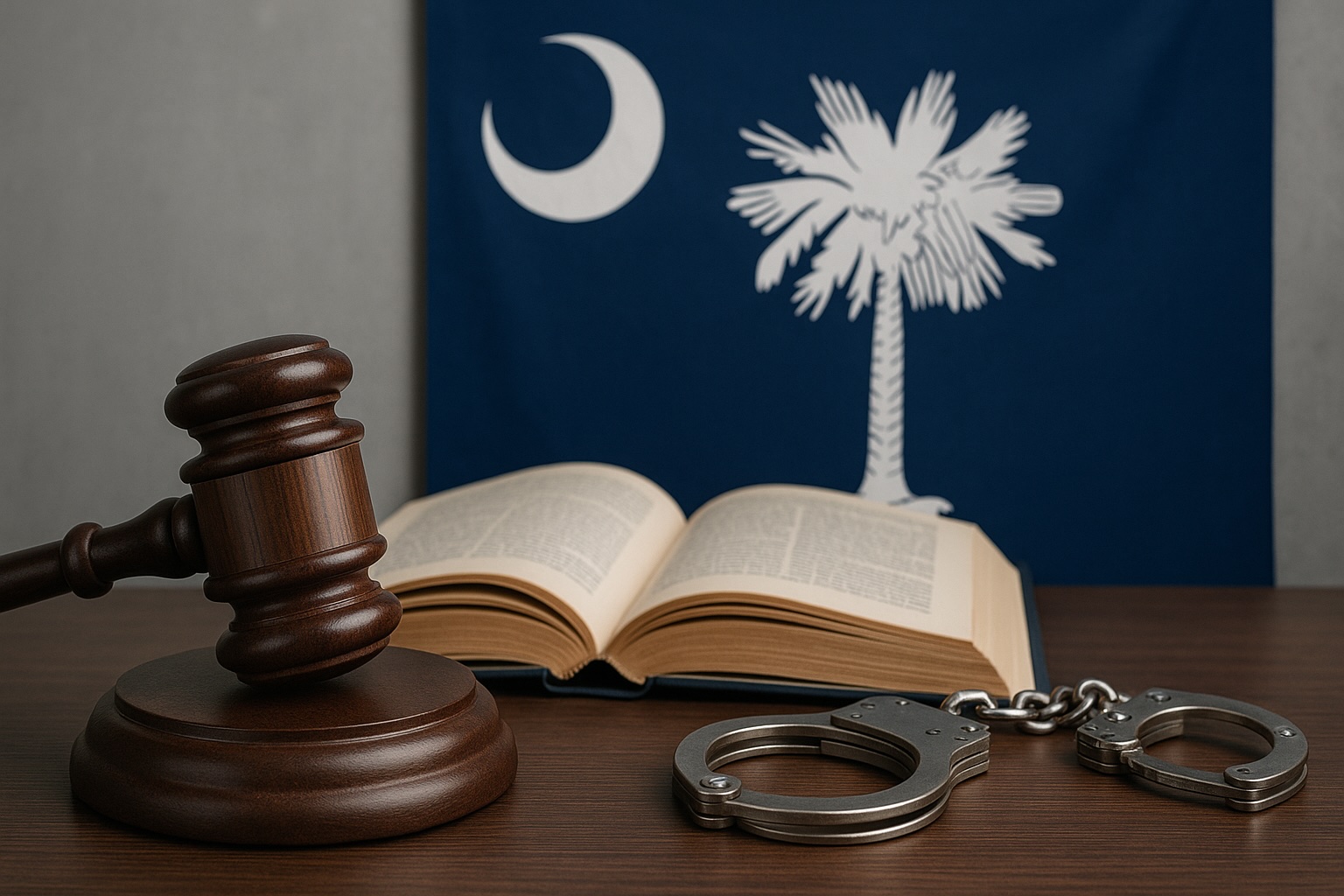Facing felony charges in South Carolina is a life-altering experience.
The consequences extend far beyond any prison sentence or fines — they can impact your civil rights, job opportunities, housing options, and your reputation for the rest of your life.
Understanding the seriousness of these charges and securing experienced legal representation is critical.
What Is Considered a Felony in South Carolina?
In South Carolina, a felony is any criminal offense punishable by more than one year in prison.
Felonies are classified by severity, with certain offenses carrying mandatory minimum sentences and no eligibility for probation or parole.
Once you are convicted, the label of “convicted felon” is permanent unless your conviction is overturned or you receive a pardon.
South Carolina does not generally allow felony expungements.
Examples of Felony Charges in South Carolina
Burglary
All burglary offenses are felonies in South Carolina:
- 1st Degree Burglary: 15 years to life; no probation
- 2nd Degree (violent): Up to 15 years
- 2nd Degree (non-violent): Up to 10 years
- 3rd Degree: 0–5 years for first offense; up to 10 years for second offense
Burglary in SC: Charges & Penalties
Assault & Battery of a High and Aggravated Nature (ABHAN)
ABHAN is a violent felony involving serious injury or a deadly weapon, punishable by up to 20 years in prison.
Assault & Battery in SC: The Complete List of Charges
Some Drug Convictions
Many drug offenses are felonies, especially those involving trafficking, manufacturing, or possession with intent to distribute. Examples include:
Criminal Sexual Conduct with a Minor (CSC)
CSC with a Minor is among the most severe felony charges in South Carolina:
- 1st Degree: 10–30 years minimum; prior convictions can lead to life without parole or death penalty
- 2nd Degree: Up to 20 years
CSC with a Minor in SC: Charges & Penalties
Other Serious Felonies
- Obstruction of Justice
- Armed Robbery
- Breach of Trust / Embezzlement
- South Carolina’s 2 Strike / 3 Strike Law
Legal and Personal Consequences of a Felony Conviction
- Prison Time & Fines – Felonies carry long prison terms, steep fines, and in some cases, mandatory minimum sentences.
- Loss of Civil Rights – This includes loss of voting rights, loss of right to possess firearms, and there are other civil rights you lose.
- Employment Challenges – Many employers run background checks, and a felony conviction can render you ineligible for certain jobs.
- Housing Restrictions – Landlords and public housing authorities may deny applications from convicted felons.
- Professional Licensing Issues – Professions such as nursing, teaching, and real estate may be off-limits.
- Social Stigma – Personal relationships, community standing, and reputation can be damaged permanently.
FAQs About Felony Convictions in South Carolina
1. What is the difference between a felony and a misdemeanor in South Carolina?
A felony is punishable by more than one year in prison, while misdemeanors carry lighter penalties. Felonies include crimes like burglary, drug trafficking, murder, Criminal Sexual Conduct with Minors, Domestic Violence 1st Degree, Domestic Violence of a High and Aggravated Nature, Assault and Battery of a High and Aggravated Nature, armed robbery.
2. How long does a felony stay on your record in South Carolina?
For the most part: forever, but there are some exceptions. For Example, depending on the age of the person when they were convicted, he/she might be able to get their conviction expunged under the Youthful Offender Act (YOA). Other possibilities could be if the case was overturned on appeal or pardoned. Generally, South Carolina does not typically allow felony expungements. An attorney could help you understand if your felony conviction will remain on your record indefinitely.
3. Can you vote if you are a convicted felon in South Carolina?
Yes, after completing your full sentence, including prison, probation, and parole. You would need to register to vote and be prepared to show proof you have completed your entire sentence.
4. Can a convicted felon own a gun in South Carolina?
No. Felons are prohibited from possessing firearms under both state and federal law.
5. What are some examples of felony crimes in South Carolina?
6. How can a criminal defense attorney help?
A criminal defense attorney may be able to advise you on your options to help determine if your felony conviction can be expunged.
Susan E. Williams, a former prosecutor, understands how the state builds cases and knows how to defend against them.
7. What is the South Carolina “Two-Strike / Three-Strike” Law?
Repeat offenders convicted of certain serious crimes can face life without parole.
Read More
8. Can a felony affect job opportunities?
Yes. Many employers and licensing boards disqualify applicants with felony records.
9. Does South Carolina have parole for felony sentences?
Some felonies allow parole, but others — like first-degree burglary and armed robbery — do not.
10. What should I do if I’m under investigation for a felony?
Contact Susan E. Williams for more information.
Why You Need an Experienced South Carolina Criminal Defense Lawyer
A felony conviction is permanent and can reshape every aspect of your life.
Having a knowledgeable defense attorney can mean the difference between prison time and a reduced or dismissed charge.
Former prosecutor Susan E. Williams has handled hundreds of criminal cases and can help advise you on protecting your rights.
Take Action Now
If you or a loved one has been charged with a felony in South Carolina, the time to act is now. Call Susan E. Williams Law for a confidential consultation and start building your defense today.

Let’s Talk About The Details of Your Case.
Choosing the right attorney can be the most important step you’ll ever take. Schedule a free consultation today. Contact Me


